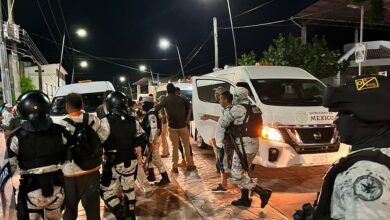Poverty engulfs Afghanistan’s middle-class as humanitarian crisis deepens

Kabul, Oct 25 (EFE).- Poverty has been on the rise in Afghanistan, engulfing the country’s middle-class, including teachers, security forces members, government employees, and private sector employees, as humanitarian crisis deepens with each passing day.
Farid Khan, 30, was working for the Nangarhar police with a monthly salary of around $250 that helped feed his family of 12, including his eight children and parents.
However, he has been facing severe economic hardship since the Taliban took over the country on Aug.15. He has not received a salary for the past four months.
“My children are hungry, we don’t have food at home, I don’t have any job for the past two months, this is the situation we have to deal with,” Khan told EFE.
Moreover, his is unable to afford the cancer treatment for his wife, as she needs to be taken to Pakistan for surgery.
Over the past two months, Khan sold his domestic appliances such as freezer, cooler and other things to feed his children but it was not enough, forcing him to appeal for help on social media.
“Dear compatriot! We have nothing at home to eat, my wife suffers from cancer and I can no longer afford her treatment. My children can’t spend time hungry, this situation is hurting me, hope you can help me,” he posted on Facebook.
Many other middle class people like Khan, who until a few months ago were comfortably off, have been taking to social media with pleas for help.
Abdul Fatah Jawad, a senior member of Ehsas Welfare and Social Services Organization, told EFE they have recorded a 70 percent increase in the number of people applying for humanitarian assistance in recent weeks.
Teachers, government employees, members of the police, army and intelligence, shopkeepers and workers of industries and factories are among those without a source of livelihood.
“These were the people who were making donations to us in the previous years and nowadays they need donations themselves,” Jawad underlined.
Activist and founder of the nonprofit Laasnewai Charity, Modaser Islami, told EFE that with the arrival of the Taliban, a “deep economic crisis” unfolded in the country as Afghan assets abroad were frozen by the US, while international assistance came to an abrupt halt, directly affecting the urban population.
“People have two options – either stay home and die of starvation, or come out and beg,” Islami said, underlining that some families have already sold their household equipment, while some have even sold off their children.
The number of beggars in cities has increased significantly, and many of them are people who “led normal lives a few months back.”
Besides the ongoing economic crisis, a drought has also affected the rural communities, particularly farmers.
“The conflict, drought, unemployment and poverty is badly affecting the economy of the rural-based population. People’s living conditions are getting worse day by day,” Keramuddin Rezazada, parliamentarian from the western Ghor province, told EFE.
“If the international community doesn’t act right now, then with the arrival of the winter the roads to most of the remote districts will be blocked and people will face a humanitarian catastrophe,” he said.
Most of the health centers are now without medicines and health workers are gradually halting services, as they are no longer being paid salaries, he added.
The Taliban government, which is yet to pay the salaries of some 500,000 employees for the past two months, is helpless in the face of the ongoing humanitarian crisis.
Recently, the Islamists launched a nationwide program to distribute 66,000 metric tonnes of wheat to the poor under a work for food program. These wheat reserves were reserved by the previous government for use in emergency situations.





